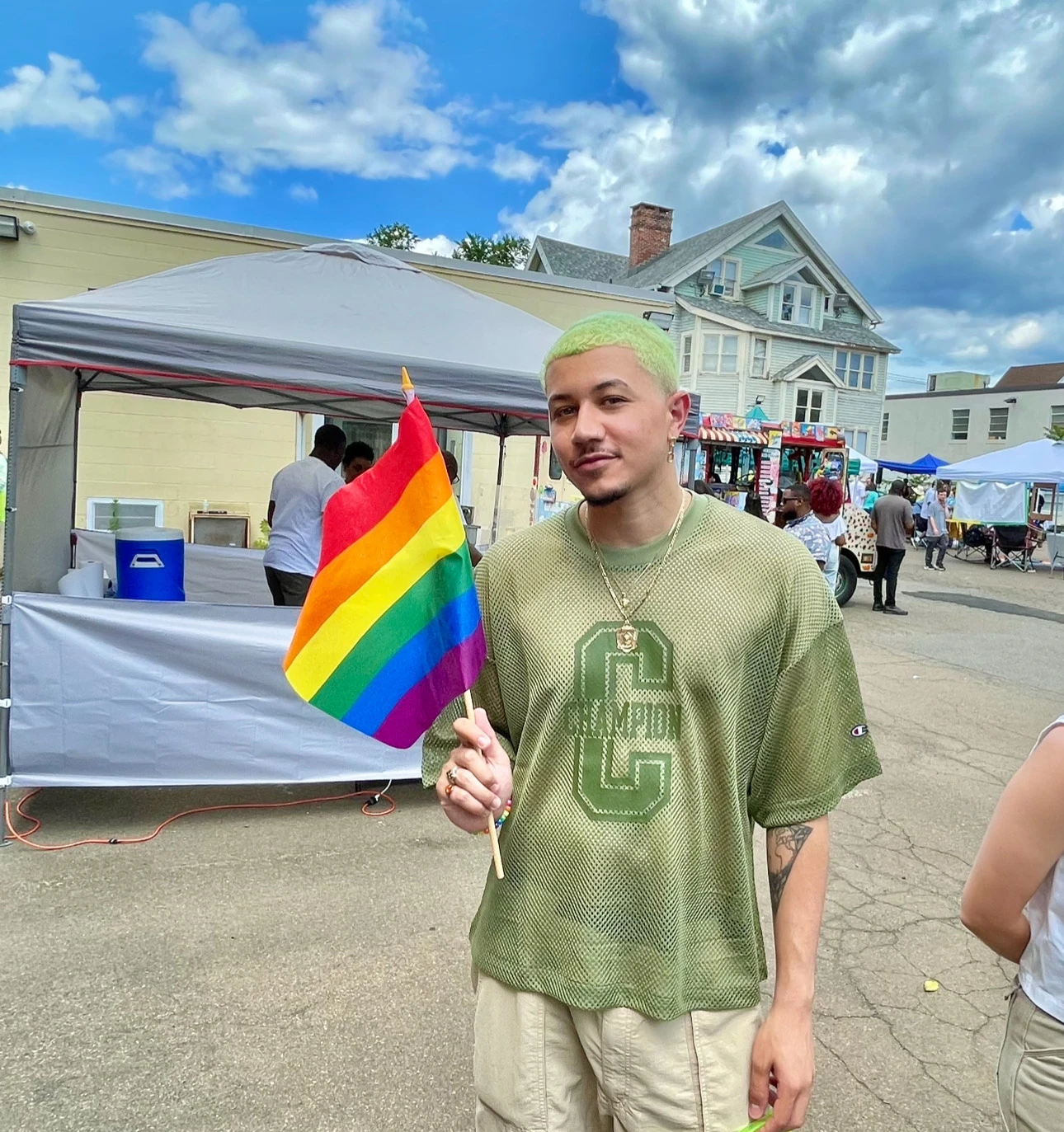I remember the first two weeks of my sentence, locked away in New Haven County Jail in Connecticut. I remember being outside in a courtyard eating from a styrofoam tray while I sat with my legs crossed and my back laid against the wall. A man approached me, he was about 5’8’’, shoulders hunched, dark brown skin and his hair was shoulder length and matted. He sat down next to me and immediately asked me about my wedding band. “Who you married to?” he asked. “Girl or guy?” Immediately, I lied. I felt bad for lying. He opened up. He told me he was gay. At that moment, I felt like I should have opened up to him and told him that I was married to a man. That I was happily married to a man. But, I wanted to protect myself, just in case. I felt like I had. The man kept talking and I wished the best for him silently as I looked up to the sun that shone down over us. I stopped talking to him because I didn’t want to be associated with a gay inmate. Because, just as my eyes moved about my surroundings, I knew that others did the same – quietly, calculating their surroundings.
I remember how fiercely I denied my sexuality when I was younger. In the first grade, I learned the word gay and thought it meant happy. I had no idea why I was captivated by this three letter word – something in my soul must have known that eventually I was going to identify with being a gay man. The energy must have been warning me on how that word was going to be used as a weapon against me to tear down my self-esteem.
However, the man, whose name I can’t remember, changed something in me. His courage allowed me to embrace being an openly gay man within the confines of a prison. People in my dorm knew that I was gay and I am grateful that some of my closest friends in prison now work with me here at Freedom Reads. Men who accepted me with open arms and looked out for me. My experience of coming out in prison was received well by a community of brothers that I did not expect to have.
I was nervous to enter a prison space as a member of the LGBTQ+ community. I acknowledge that members of our community aren’t always received the best in prison spaces, especially trans women incarcerated in men’s facilities. But my experience was one of love, acceptance, and learning, not only for myself but for everyone I interacted with.
I mention this to share the wonderful experiences I have had with folk from the inside in Missouri and North Carolina. To be able to enter a facility, fully myself, and talk with people from the LGBTQ+ community. To hear a trans woman talk about her partner of 13 years who happens to be incarcerated with her. To speak with two men who found each other in prison and grew to love one another in a place where love seems incapable. To receive letters from LGBTQ+ folk on the inside like this one:
Look, it was great to see someone from my community come in and so easily accepted - or at least you made it look so. . . You allowed me to feel seen for a moment.
-Christopher, Nash Correctional Institute, North Carolina
As Wilbur, also from Nash, puts it, the LGBTQ+ demographic is, “usually silenced, dismissed, or viewed as not having any discernible value that would contribute to anything worthwhile.” This is why it is important to embrace my full identity when entering prison spaces – so that people feel seen. Representation matters. People deserve to see representation of themselves and the lives they lead. I am grateful to say that I work for an organization that values and honors our intersectional identities, and provides a curated collection of literature to cellblocks across the nation that includes a number of authors from the LGBTQ+ community. So that when people pick up a book they feel understood and a little less alone.
From Freedom Reads to wherever you may be reading, we are wishing you the happiest of Pride.
